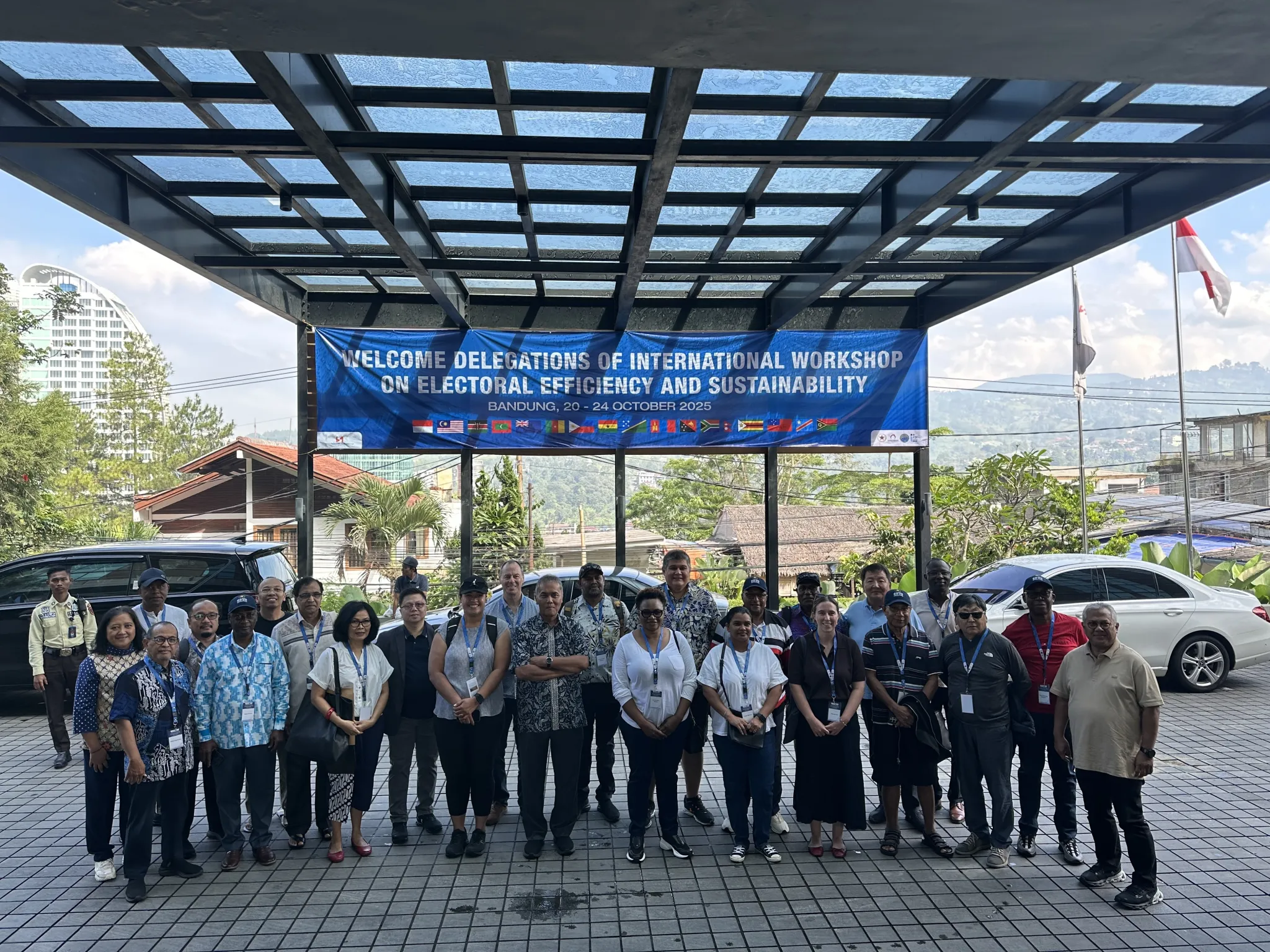Investing in democracy: Lessons from the Asia-Africa Conference and International IDEA’s 30 years

As International IDEA marks its 30th anniversary, another historic milestone took place this year: the 70th anniversary of the Asia-Africa Conference. Held in Bandung, Indonesia, the original conference brought together representatives from numerous countries, laying the groundwork for South-South cooperation and future collaboration between Asia and Africa.
In the spirit of this legacy, International IDEA, the Non-Aligned Movement Centre for South-South Technical Cooperation (NAM CSSTC), and Indonesia’s State Secretariat (Setneg) hosted the International Workshop on Electoral Efficiency and Sustainability from 20–24 October. Electoral commissioners, chairpersons, and representatives from 15 Electoral Management Bodies (EMBs) across the Pacific, Asia, and Africa convened to discuss a critical issue: the cost of elections.
Gram Matenga, International IDEA’s Regional Head of Programmes for Africa and West Asia highlighted in his opening remarked, “The cost of elections should never become a barrier to democracy.” This sentiment resonated deeply throughout the duration workshop, framing the discussions around the urgent need to balance financial sustainability with democratic integrity.
The workshop served as a platform for candid dialogue on the challenges of safeguarding elections: often considered the foundation of democracy. Participants shared insights into the financial, logistical, and political hurdles they face, revealing common threads across regions. Echoing the collaborative ethos of the Asia-Africa Conference and International IDEA, the discussions underscored the importance of cross-regional cooperation in strengthening electoral integrity.
Ms Noviyanti, Head of the Bureau for International Technical Cooperation, Ministry of State Secretariat, underscored the continued relevance of regional solidarity and cooperation, principles that guided the Asia-Africa Conference and have continued to guide International IDEA throughout its 30 years of promoting sustainable democracy. She noted that “Elections are the cornerstone of democracy, embodying people’s participation in shaping their government.” She continued to acknowledge that as elections evolve, so do their complexities, reflecting on the notion that the Indonesian experience is not singular. While their constituencies may be much larger than some of the other countries participating in the workshop, “geographical challenges, digital literacy, digital divide” and “cultural differences...are among the variables that I believe are not alien from democratic experiences of each country.” Her remarks resonated with the solidarity that has long defined these partnerships, reaffirming the shared commitment to strengthening electoral integrity across regions.
Opening the workshop, Ambassador Diar Nurbiantoro, Director for NAM CSSTC emphasized that,
“Elections are not just expenses but long-term investments into democracy.”
This statement set the tone for the sessions, encouraging participants to view electoral funding as a necessity. The consensus was clear, sustainable financing is not optional; it is essential for democratic resilience, especially in regions grappling with complex challenges.
However, investment alone is not enough. As one speaker from the Asia-Pacific region noted, “Trust is the lifeblood of a well-functioning society.” Electoral integrity hinges not only on operational efficiency but also on public confidence in the fairness and transparency of the process. Discussions highlighted the need for independent EMBs, timely and sufficient funding, and strong accountability mechanisms. Without these pillars, even well-funded elections risk losing legitimacy.
Looking ahead, a representative from the Asian Network for Free Elections (ANFREL) stated, “Financing laws must be stronger, this needs more coordinated effort.” This sentiment reflects a growing regional demand for transparency and accountability in campaign financing. Participants agreed that EMBs alone cannot shoulder this responsibility. Civil society, legislatures, and oversight institutions must work together to build systems that are not only cost-effective but also equitable and resilient.
The workshop concluded with a renewed commitment to collaboration, learning, and progress, reminding all involved that democracy is a shared journey requiring collective effort, an enduring message that resonates with the essence of the Asia-Africa Conference and International IDEA’s 30 years of promoting democratic cooperation worldwide.




